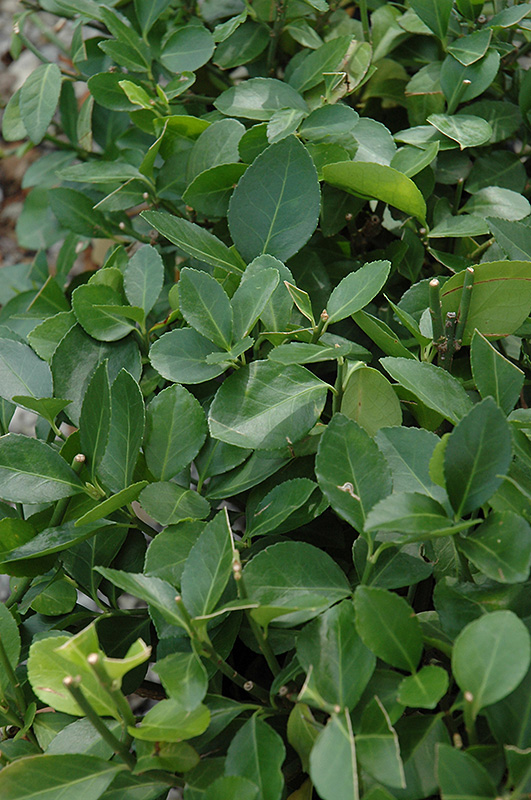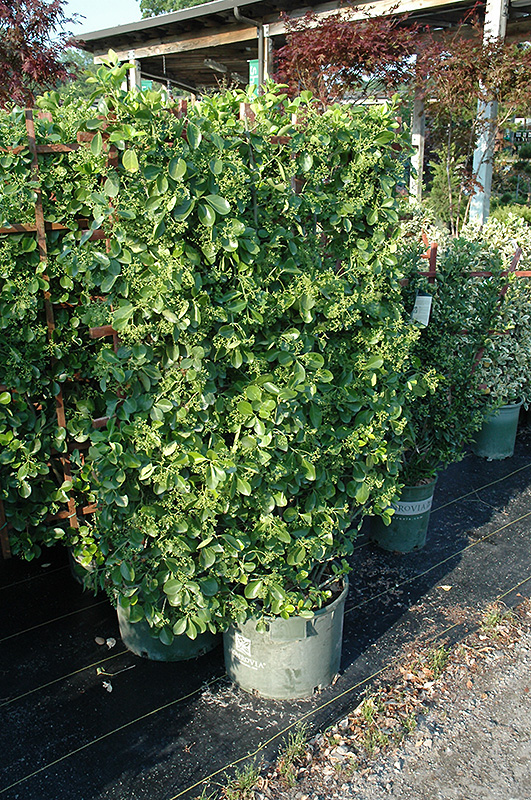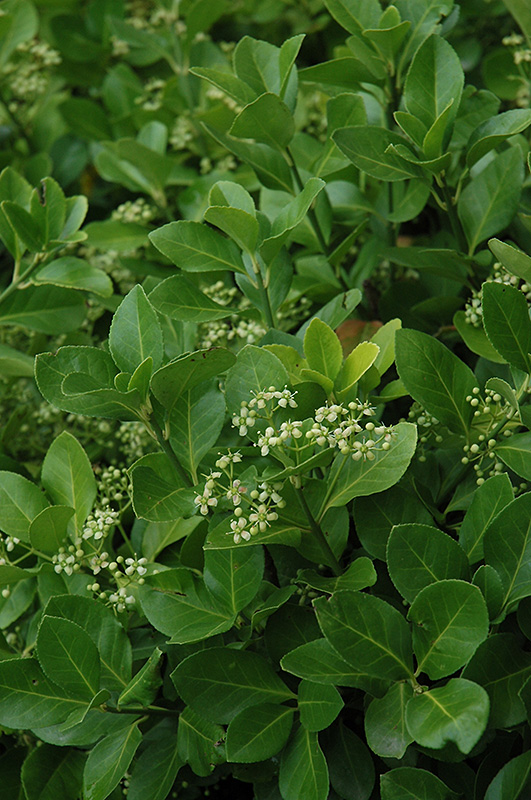>> Home
Manhattan Spreading Euonymus
Euonymus kiautschovicus 'Manhattan'
Height: 8 feet
Spread: 5 feet
Sunlight:
![]()
![]()
![]()
Hardiness Zone: 4
Other Names: Manhattan Euonymus
Description:
A spectacular mounded garden shrub featuring dark green evergreen leaves, and a large spreading habit; pinkish fruit is showy in fall; an excellent accent for a wide variety of landscape applications
Ornamental Features
Manhattan Spreading Euonymus is primarily grown for its highly ornamental fruit. It features abundant showy pink capsules from mid to late fall. It has attractive dark green evergreen foliage. The glossy oval leaves are highly ornamental and remain dark green throughout the winter.
Landscape Attributes
Manhattan Spreading Euonymus is a multi-stemmed evergreen shrub with a more or less rounded form. Its relatively fine texture sets it apart from other landscape plants with less refined foliage.
This shrub will require occasional maintenance and upkeep, and can be pruned at anytime. Gardeners should be aware of the following characteristic(s) that may warrant special consideration;
- Insects
Manhattan Spreading Euonymus is recommended for the following landscape applications;
- Mass Planting
- Hedges/Screening
- General Garden Use
- Groundcover
Planting & Growing
Manhattan Spreading Euonymus will grow to be about 8 feet tall at maturity, with a spread of 5 feet. It tends to fill out right to the ground and therefore doesn't necessarily require facer plants in front, and is suitable for planting under power lines. It grows at a fast rate, and under ideal conditions can be expected to live for approximately 30 years.
This shrub performs well in both full sun and full shade. It is very adaptable to both dry and moist locations, and should do just fine under average home landscape conditions. It may require supplemental watering during periods of drought or extended heat. It is not particular as to soil type or pH. It is highly tolerant of urban pollution and will even thrive in inner city environments, and will benefit from being planted in a relatively sheltered location. This is a selected variety of a species not originally from North America.


